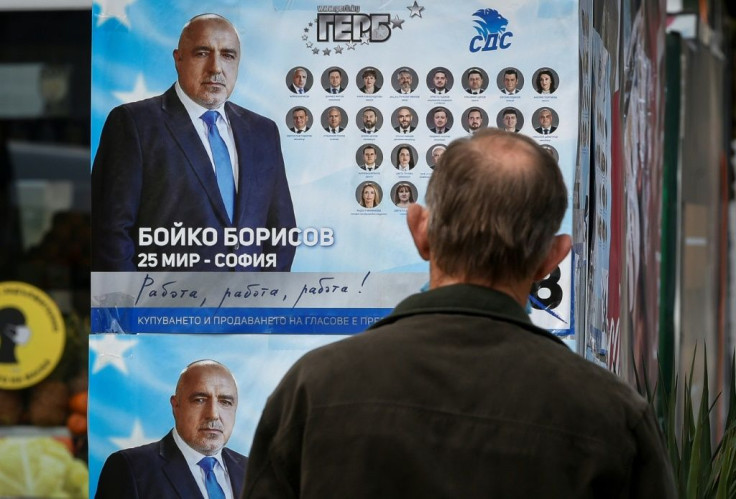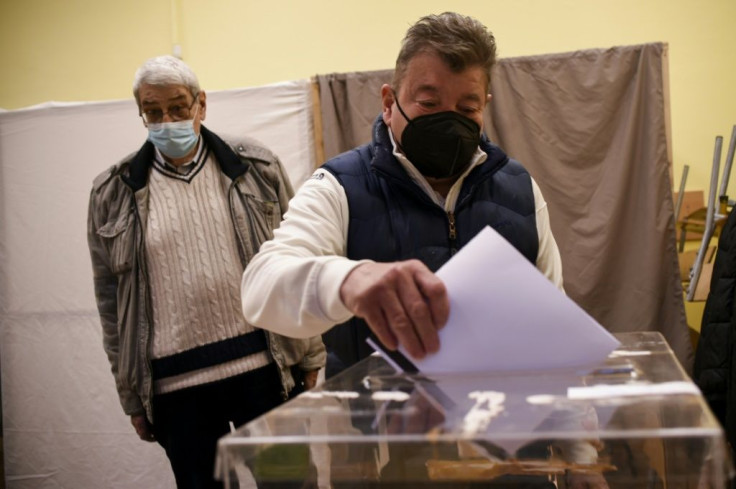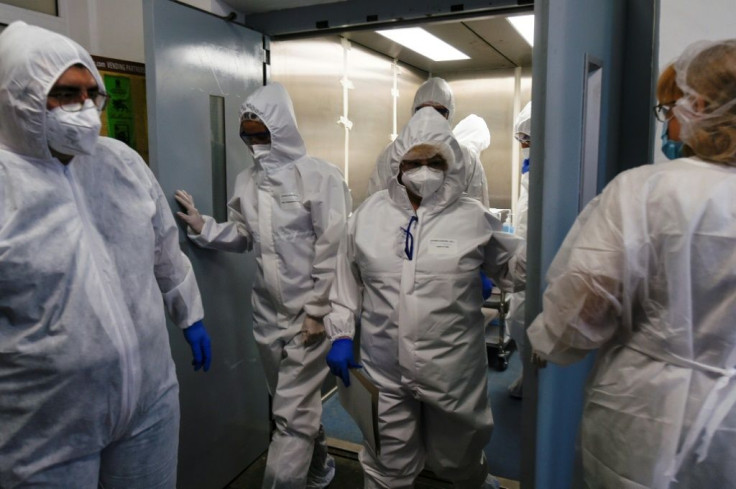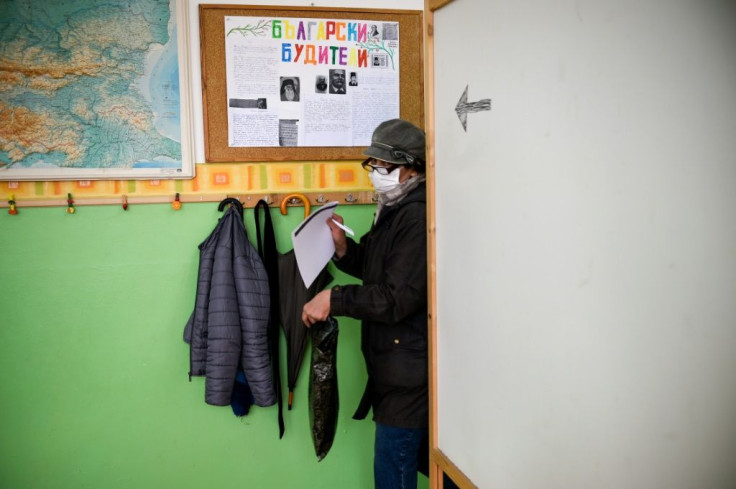Bulgarian PM's Party Set To Top Vote But Protest Parties Surge
The centre-right GERB party of outgoing Bulgarian Prime Minister Boyko Borisov has come first in parliamentary elections with around 25 percent of the vote, according to exit polls published on Sunday evening after polls closed.
With his party's near-decade in power undermined by scandals and protests, Borisov said that "I offer peace" in remarks directed at his opponents from the doorstep of his home.
"You won't make it on your own... let's unite," he added, playing up his own experience and suggesting a cabinet of experts "to get out of the pandemic" after an election marked by coronavirus fears.

Analysts however expect an uphill battle for Borisov to cobble together a new coalition after unexpectedly strong performance for new populist and anti-government protest parties.
The exit polls suggest that a new populist group, There is Such a Nation, led by sharp-tongued talk show host and Borisov critic Slavi Trifonov, has won around 17 percent, neck-and-neck with the traditional main opposition Socialist party.
Isolated with Covid-19 symptoms, Trifonov wrote to followers on social media late Sunday that "It is important what you did today! (...) Today you are the winners! You have requested power and change is inevitable."
Analysts commented that Trifonov was set to steal the place of kingmaker from the Turkish minority Movement for Rights and Freedoms party, who were polling at around 11 percent.

"Bulgarian voters chose change," MRF leader Mustafa Karadaya said late Sunday, declining to answer questions on possible coalitions before he saw the final results.
Ognyan Minchev, director of Sofia's Institute for International Studies, judged that "there hasn't been (political) fragmentation like this since the 1990s".
"The compromises to form a government will be very difficult, and if the talks succeed, the cabinet won't last more than a year," he predicted.

Support for GERB has been badly eroded by a series of scandals and months of sometimes violent protests last year that accused the government of protecting oligarchs.
If borne out, the exit poll results would represent a fall of around nine points from its 2017 performance but some analysts called even this result "a remarkable feat" on the part of the embattled marathon premier.
Official results are not expected before Thursday.

President Rumen Radev, who supported last year's anti-government protests and has been a vehement critic of Borisov, called the elections "a step towards returning to normality."
Many voters also said they hoped that they will bring change.
"I'm part of the generation that witnessed the transition" from communism to democracy, 50-year-old Antoaneta Raponska said. "I hope that the changes of the past 30 years will finally bring a result".
Dressed in worker's overalls as he queued in the rain to vote, 43-year-old Krassimir Slavchev said that Bulgarians must "vote and demand responsibility, that's what we have to do to no longer hear that Bulgaria is the poorest (country) in Europe".
Bulgaria voted while battling a third wave of coronavirus infections that has seen hospital admissions spike.
Voting booths were set up in hospitals and poll workers also took ballot boxes to voters in quarantine.
While some had worried that coronavirus fears would keep voters away from the polls, turnout fell only a few percentage points compared with 2017, from 54 to 48 percent.
There had been "mobilisation among urban voters and the young," analyst Dimitrova said.
Two formations specifically targeting the votes of those who joined last year's demonstrations look to have garnered around 15 percent of the vote between them.
They are the right-wing Democratic Bulgaria coalition -- whose leader Hristo Ivanov encouraged the protests -- and the Stand up! Mafia out! left-wing coalition, close to Radev.
Ivanov said Sunday he was hoping for a "parliament with more legitimacy to launch a debate on change" but added that he would not enter the executive at any price.
The last party set to clear the hurdle of four percent to gain seats is GERB's current government coalition partner, the nationalist VMRO party.
© Copyright AFP 2024. All rights reserved.





















